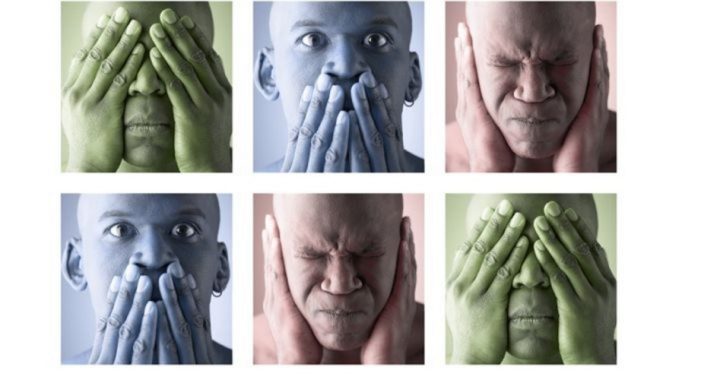
If you are a teacher, you’ll want to make sure you have no problem pronouncing your students’ names; otherwise, you could be charged with committing micro-aggressions that could get branded a bigot.
The Associated Press reports that schools across the country are calling on their teachers to take a pledge promising not to mispronounce names of students.
The National Association for Bilingual Education (NABE) has launched a campaign called “My Name, My Identity: A Declaration of Self,” warning educators that not knowing how to pronounce a child’s name could cause “anxiety and resentment.”
What is a micro-aggression? Here’s one definition: “A microaggression can be rooted in racism, sexism, or discrimination based on nationality or sexual orientation. It can be delivered casually or even unconsciously. And it can unleash effects that add up over time.”
“Mispronouncing a student’s name truly negates his or her identity, which, in turn, can hinder academic progress,” according to Yee Wan, director of multilingual education services at the Santa Clarita, California, school district.
Rita Kohli, assistant professor of education at the University of California at Riverside, called the mispronouncing of names a “micro-agression” that essentially represents “disregarding the family and culture of the student as well.”
Micro-aggression is the newest touchstone of totalitarianism. Every statement that doesn’t support the state and its multi-cultural mania must be punished and must be forcibly removed from the mouth of the “micro-aggressor.”
Thomas Sowell explained the underlying purpose and philosophy of the definers of what is verbally verboten:
Word games are just one of the ways of silencing politically incorrect ideas, instead of debating them. Demands that various conservative organizations be forced to reveal the names of their donors are another way of silencing ideas by intimidating people who facilitate the spread of those ideas. Whatever the rationale for wanting those names, the implicit threat is retaliation.
This same tactic was used, decades ago, by Southern segregationists who tried to force black civil rights organizations to reveal the names of their donors, in a situation where retaliation might have included violence as well as economic losses.
In a sense, the political left’s attempts to silence ideas they cannot, or will not, debate are a confession of intellectual bankruptcy. But this is just one of the left’s ever-increasing restrictions on other people’s freedom to live their lives as they see fit, rather than as their betters tell them.
As of today, 528 school districts have adopted the pledge of perfect pronunciation. It’s a good thing, too, because should teachers be found fumbling over foreign names, the politically correct cops will be publicizing the failure of teachers to coddle the kids.
What, exactly, is the microaggression? An article posted on the blog Cult of Pedagogy puts a finer point on the plague of improper pronunciation:
Mutilating someone’s name is a tiny act of bigotry. Whether you intend to or not, what you’re communicating is this: Your name is different. Foreign. Weird. It’s not worth my time to get it right….
And before you get all defensive about the bigotry thing, let’s be clear: Discovering that something you do might be construed as bigotry doesn’t mean anyone is calling you a bigot. It’s just an opportunity to grow.
Teachers beware! Should you flub a foreign name, you will be branded as a bigot and you will be convicted of trying to deny kids a chance to be all they could have been had you not negated their humanity by your trip of the tongue.
Of course, people possessed of common sense could come up with a thousand ways to help kids feel comfortable and respected. Of all people who would least welcome discomfort and dread among children, teachers are at the top of the list.
Educators typically go out of their way to create an inviting and inspiring environment for the kids in their care. They would ask the child or his parents how to pronounce the difficult name well before any shame or sensitivity could stymie the student’s progress or cause discomfort among his peers.
That solution, however, would not please the educrats and the collectivists that control them and the curriculum taught in public schools.
These social engineers prefer to issue bills of attainder, tainting otherwise well-meaning and caring school teachers as bigots and xenophobes, committed to embarrassing the kids they sacrifice time and treasure to train.
It’s nonsense, of course. Teachers don’t mispronounce names out of some deep-seated desire to single out students for their differences, they mispronounce names because they are humans.
These mistakes are not micro-aggressions, they are minor errors that can be and regularly are overlooked even by elementary school children.
That is, they would have been overlooked had the brigades of social just warriors not found a new beachhead to invade on which they will establish another outpost of the collectivist global government.
The apparatchiks who administer the ever-shifting regulatory schemes concocted in the ivory towers of petty tyrants will ensure enforcement of these edicts by conducting seminars in schools from coast to coast, teaching teachers how evil they are and how they, unwittingly, subject their students to the terrors of cultural condemnation perpetrated by the simple act of saying a name incorrectly.
Micro-aggression, therefore, converts little errors into institutional-level bigotry, and, in the words of Thomas Sowell, these pronunciation police use “micro-aggression” to enforce “micro-totalitarianism.



